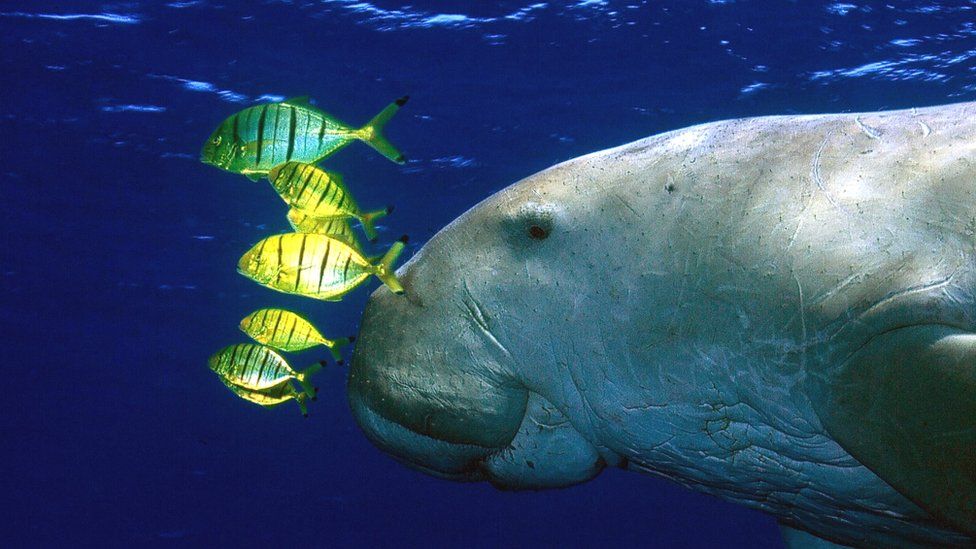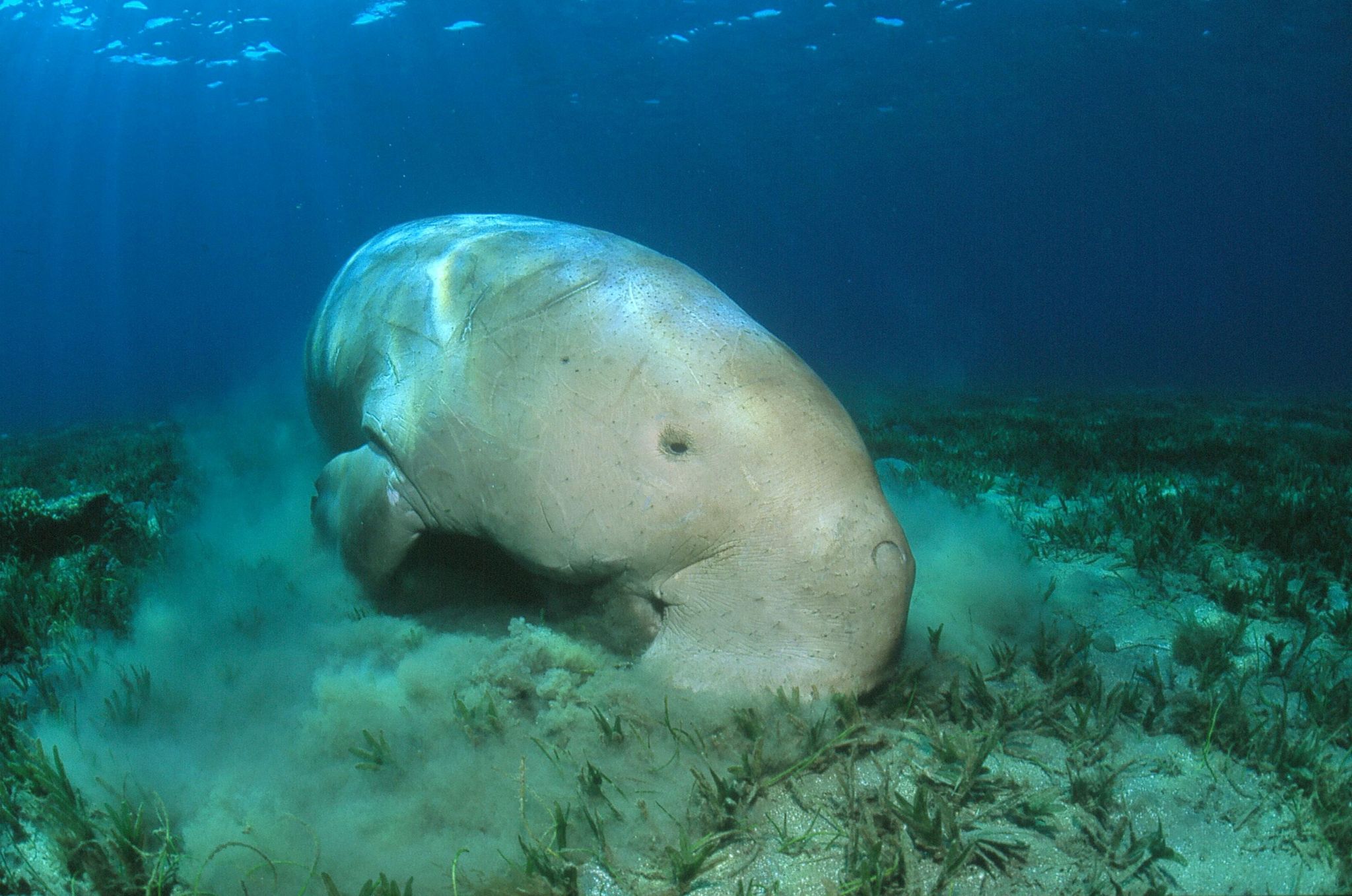



Only three people surveyed from coastal communities in China reported seeing the dugong in the past five years.
Known as the ocean's most gentle giant, the dugong's slow, relaxed behaviour is likely to have made it vulnerable to overfishing and shipping accidents.
It still exists elsewhere in the world but is facing similar threats.
Prof Samuel Turvey, from the Zoological Society of London (ZSL), who co-authored the research study, said: "The likely disappearance of the dugong in China is a devastating loss."
Scientists at ZSL and the Chinese Academy of Science reviewed all historical data on where dugongs had previously been found in China.
They found there had been no verified sightings by scientists since 2000.
In addition, the researchers turned to citizen science to interview 788 community members living in those coastal regions identified, to determine when local people had last seen one.
On average, residents reported not having seen a dugong for 23 years. Only three people had seen one in the past five years.
This has led the researchers to declare the dugong functionally extinct - meaning "it is no longer viable... to sustain itself", Heidi Ma, postdoctoral researcher at ZSL, told the BBC.
The dugong is a unique character of the sea. Weighing in at almost half a tonne, it is the only vegetarian marine mammal.
Similar in appearance and behaviour to the manatee, but distinguished by its whale-like tail, its gentle - seemingly benign - disposition has led some to believe that it inspired ancient seafaring tales of mermaids.

Dugongs use sensitive bristles on the end of their snout to feed on seagrass
Sadly, its habitat close to shore in China left it vulnerable to hunters in the 20th Century who sought the animal for its skin, bones and meat.
After a notable decline in population, dugongs were classified as a grade-one national key protected animal by the Chinese State Council in 1988.
But researchers believe that the continuing destruction of its habitat - including a lack of seagrass beds for feed - has caused a "rapid population collapse".
The UN Environment Programme estimates that 7% of seagrass habitat is being lost globally every year because of industrial and agricultural pollution, coastal development, unregulated fishing and climate change.
Prof Turvey said its extinction in China should act as a warning to other regions that house dugongs - including Australia and East Africa - calling it "a sobering reminder that extinctions can occur before effective conservation actions are developed".
The species is found in 37 other tropical regions in the world - in particular the shallow coastal waters of the Indian and western Pacific Oceans - but is classified as "vulnerable" on the International Union for the Conservation of Nature's (IUCN) red list of threatened species.
Countries are currently meeting in New York to sign a new UN marine treaty which would put 30% of the world's oceans in protected areas.
Kristina Gjerde, high-seas policy adviser for the IUCN, told the BBC: "The dugong is a sad example of what is happening to the marine environment where there is increasing encroachment of human activities."
-- Courtesy of BBC News